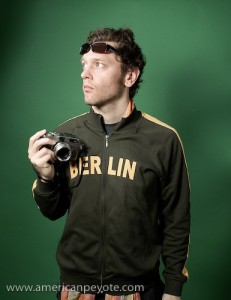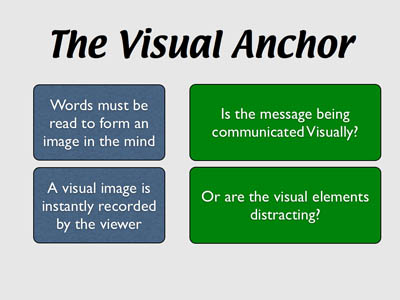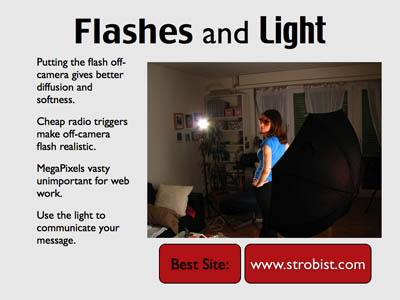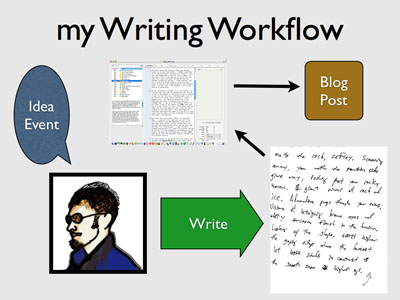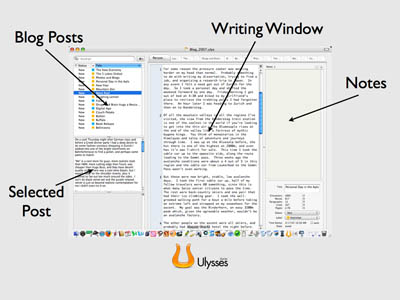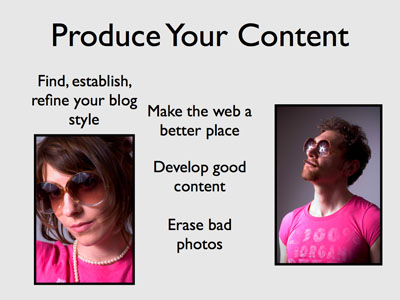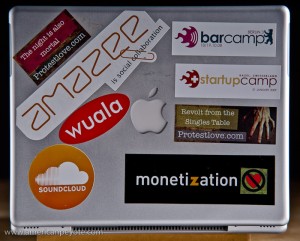 Web Monday Zurich #13 was held at the offices of Wuala in Zurich (I took a sticker for my laptop), and covered such lovely topics as why companies fear Facebook, the history of the music industry and the visual searching tool I always wanted but never knew existed. I had a headache during the presentations, but that didn’t deter from the coolness of the tech evening from settling into my neuron flow. To join future Web Monday meetings check out the Web Monday Zurich project on Amazee.
Web Monday Zurich #13 was held at the offices of Wuala in Zurich (I took a sticker for my laptop), and covered such lovely topics as why companies fear Facebook, the history of the music industry and the visual searching tool I always wanted but never knew existed. I had a headache during the presentations, but that didn’t deter from the coolness of the tech evening from settling into my neuron flow. To join future Web Monday meetings check out the Web Monday Zurich project on Amazee.
I can’t say where the pain in my head came from exactly, some combination of being sick last week, finishing a review of a new electroactive polymer paper, ski touring towards the Wildstrubel (before recovering) in a snow storm and building up an image of a beautiful woman next to a nuclear mushroom cloud is bound to put pressure on essential areas of my neural networks. Plus I think I need new glasses.
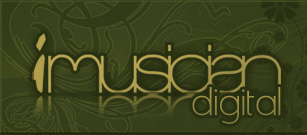 According to the book “Neuro Web Design: What Makes them Click?” (which I read for the last UX Book club Switzerland ), people love stories, and if you start one everyone will be captivated. This explains why iMusicianDigital AG was my favorite presentation of the night, because it was mainly a story, that of the music industry from the 1990’s till today.
According to the book “Neuro Web Design: What Makes them Click?” (which I read for the last UX Book club Switzerland ), people love stories, and if you start one everyone will be captivated. This explains why iMusicianDigital AG was my favorite presentation of the night, because it was mainly a story, that of the music industry from the 1990’s till today.
The 90’s were the golden age of the music industry. People went crazy buying over-priced CDs and more money was made in this time than at any other time in the history of the industry. Then, around 2001 broadband hit along with cheap CD burners and P2P networks, and all the consumers who were pissed off at paying $20 for an album on CD with two good songs and a lot of crap on it were all too happy to pirate as much music as possible (this last part is my own take on the history). CD sales dropped and there was a 20% sales decline per year. Discount CD sales were pushed by big retailers like Media Markt and Best Buy (in the US) who lost money on CDs but made a killing on other stuff (first get them in the stores). While this all went down the local retailers and cool CD shops where put out of business…and now where are we?
Now it’s estimated that 60% of the music we consume is pirated in some way or another. Why? There is a theory, purported in books like “Free” and “Economies of Abundance” that the value of things like images, music, movies, and other media will always tend to zero in the long run (like your survival rate). So how does one make money on something with a declining perception of monetary value like a music album?
Well, first off, in the traditional model of the music industry there was no real-time accounting and the administration of selling music was very inefficient. In the new model, such as with iMusicianDigital the content is user generated whenever possible. An artist creates an account, uploads the album as uncompressed audio and that music is distributed to iTunes, Amazon, etc. The musician sees real-time stats for where the music is bought, what countries, how much, when, and is paid in a timely manner.
How successful an artist is financially is dependent on much more than the distribution system. The savvy musician needs to build a fan base, often through live shows (connect the poetry to the reader) and now through social networking tools like Facebook, MySpace, etc. It’s like anything else, you need some way to connect to the fan base and develop a community.
iMusicianDigital is attempting to fill that niche, that area of the music industry which is in flux. Artists upload their album and a little while later it’s available on iTunes, Amazon, etc. It’s interesting for me to learn about this stuff, because I want to the a similar thing with self-published books. Seeing how music is distributed and promoted online is similar to the publishing-on-demand business models for books, putting the promotion and marketing of the material in the hands of the creator.
 Raphael Briner from HyperWeek gave the first presentation of the night about developing online social networking communities (think Facebook) for businesses. Why do businesses need his company? Because it’s too hard to build the platforms up from scratch. A few examples were shown including stackoverflow.com and it’s cool to hear about the development of this stuff. However, since I’m a consumer and am now overloaded with Facebook, Twitter, Tumblr, my blog and Flickr, I stood around wondering when I’m going to actually start shooting pictures again (yes, my mind wanders, the result of too many social networking sites).
Raphael Briner from HyperWeek gave the first presentation of the night about developing online social networking communities (think Facebook) for businesses. Why do businesses need his company? Because it’s too hard to build the platforms up from scratch. A few examples were shown including stackoverflow.com and it’s cool to hear about the development of this stuff. However, since I’m a consumer and am now overloaded with Facebook, Twitter, Tumblr, my blog and Flickr, I stood around wondering when I’m going to actually start shooting pictures again (yes, my mind wanders, the result of too many social networking sites).
![]() The last presentation was for Oskope, the visual search and find design I’ve always new was possible, and continually frustrated when it didn’t exist. The concept of Oskope was originally presented two years ago, but this was the first I’d seen of it (I’m often oblivious to the world, I admit it). The idea of Oskope is to present products as images, allowing you to search visually and have the image products grouped in a certain way that you can better find what you were looking for. Ever tried searching for “Shoes” on Amazon? I’ve even tried using eBags to find a cool leather bag, and ended up going to Scaramanga in the UK. To be fair, Scaramanga sells some of the coolest vintage bags I could imagine (perhaps I’m just shallow) but the point is that sites like Amazon are really a cluster-fuck to search through unless you specifically know what you want (or just accept what they want to see to you).
The last presentation was for Oskope, the visual search and find design I’ve always new was possible, and continually frustrated when it didn’t exist. The concept of Oskope was originally presented two years ago, but this was the first I’d seen of it (I’m often oblivious to the world, I admit it). The idea of Oskope is to present products as images, allowing you to search visually and have the image products grouped in a certain way that you can better find what you were looking for. Ever tried searching for “Shoes” on Amazon? I’ve even tried using eBags to find a cool leather bag, and ended up going to Scaramanga in the UK. To be fair, Scaramanga sells some of the coolest vintage bags I could imagine (perhaps I’m just shallow) but the point is that sites like Amazon are really a cluster-fuck to search through unless you specifically know what you want (or just accept what they want to see to you).
For me Oskope is a window into how online shopping should be done. But the technology is distributed in a licensing model, and till now I never knew it existed. So where is the value in it? Promote it, get in online stores, revolutionize my online buying experience. If Oskope gets ported to Android (and as well the iPhone and iPad) I think it will really take off, as it’s the exact type of shopping experience a touch device consumer will love.
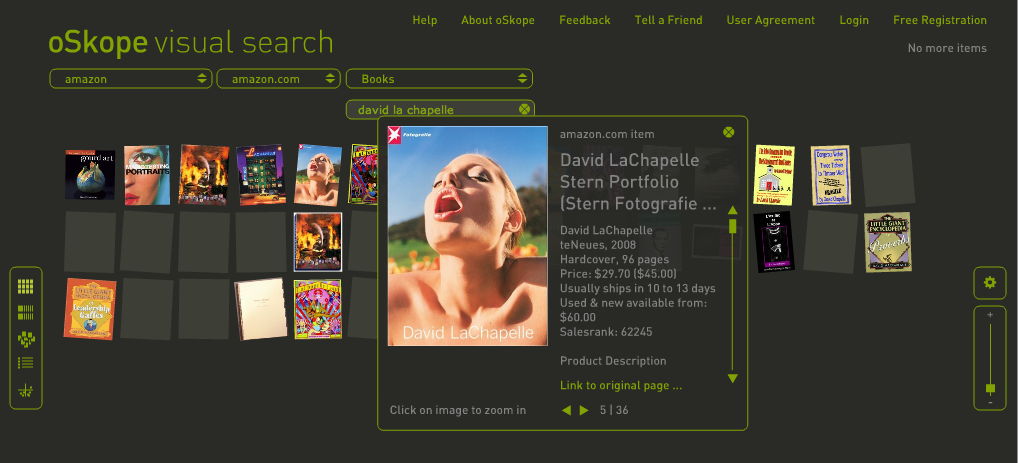
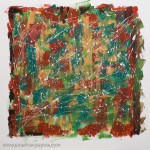
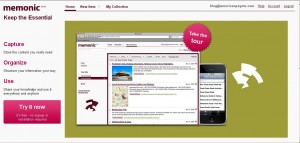

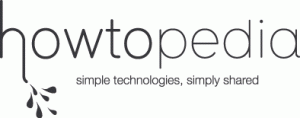
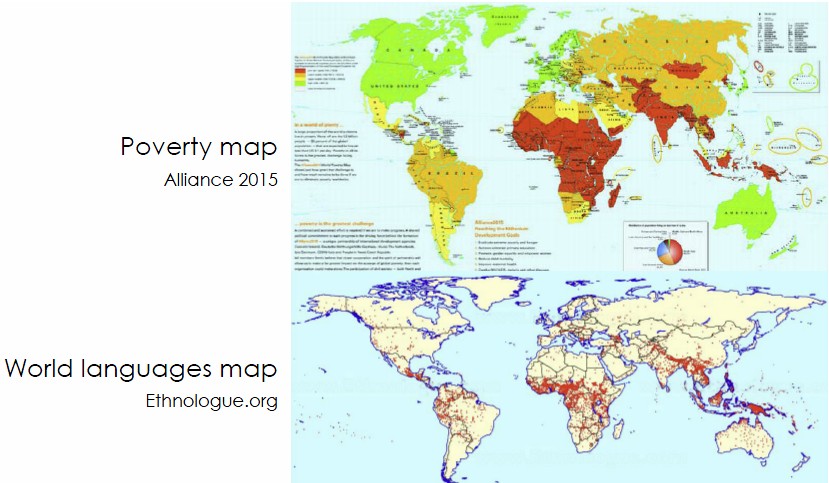
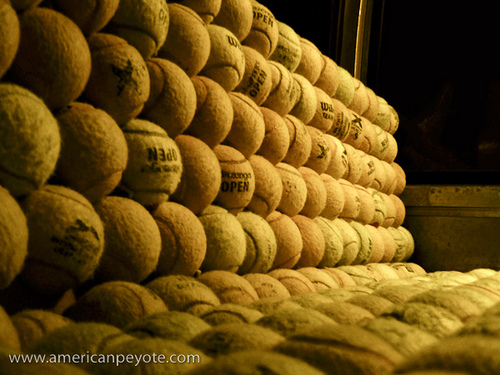
 The
The  Last up Mathias Vogel talked about the
Last up Mathias Vogel talked about the 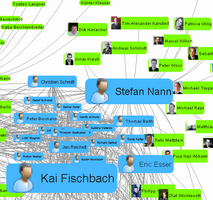 As part of the FHNW program two projects were also presented. Amazee is included in one of their partner projects, one goal being the creation of a sort of Karma Index into the Amazee system, which will include a recommendation engine so that new users are quickly connected with other users with similar interests when they join. I find this to be fantastic, because the first thing you wonder about when joining an online organization like Amazee (or Stylished, or Talenthouse, or Flickr) is how to find the people you want to work with. My mind had become a tad befuddled by this point from the free beer, but it was able to coherently listen to the presentation of the
As part of the FHNW program two projects were also presented. Amazee is included in one of their partner projects, one goal being the creation of a sort of Karma Index into the Amazee system, which will include a recommendation engine so that new users are quickly connected with other users with similar interests when they join. I find this to be fantastic, because the first thing you wonder about when joining an online organization like Amazee (or Stylished, or Talenthouse, or Flickr) is how to find the people you want to work with. My mind had become a tad befuddled by this point from the free beer, but it was able to coherently listen to the presentation of the 


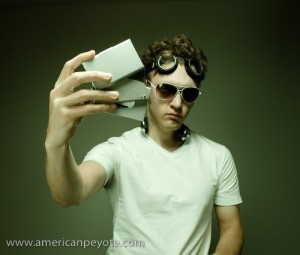 During my visit to the first
During my visit to the first 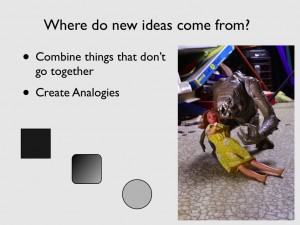 Create an Analogy
Create an Analogy Retro
Retro Mind Body Duality
Mind Body Duality Avoid Cliches
Avoid Cliches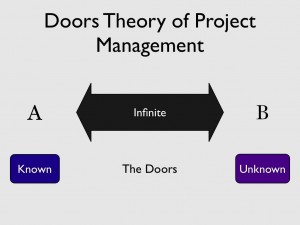
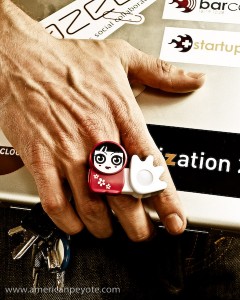 “
“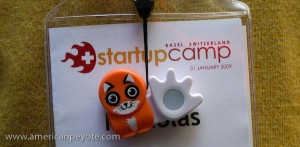
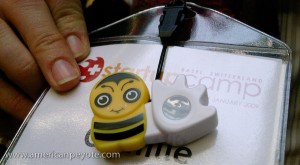 Here’s the deal. You meet someone, say at the first Swiss StartUp Camp in Basel. You decide this person is pretty cool and that you’d like to have their contact info, so you pull out your Poken. You touch your Poken to their Poken, a little green light illuminates on both device…and that’s it. If the light is red, it means it didn’t work and you try again. Now, you head back to your place after meeting a ton of people and plug your Poken into the USB port on your computer. You open the link to the Poken main webpage (which pops up on the drive of the Poken), after registering (takes 5 minutes) all the people you “Pokened” are listed. Or rather, the devices are listed. If the person you met hasn’t registered with Poken and associated their contact information, then obviously you can’t get in touch with them. Poken records the device contact, but all the actual contact information is saved on the Poken webpage. But, basically after getting Pokened you have the contact information and all is good in the world. When you register with Poken you’re basically linking your social networks like Flickr, Facebook, Xing, etc. to your Poken account. So when I look at my contacts on the Poken page, I have direct links to all the networks they’ve associated with their Poken account, simple, perfect, Poken.
Here’s the deal. You meet someone, say at the first Swiss StartUp Camp in Basel. You decide this person is pretty cool and that you’d like to have their contact info, so you pull out your Poken. You touch your Poken to their Poken, a little green light illuminates on both device…and that’s it. If the light is red, it means it didn’t work and you try again. Now, you head back to your place after meeting a ton of people and plug your Poken into the USB port on your computer. You open the link to the Poken main webpage (which pops up on the drive of the Poken), after registering (takes 5 minutes) all the people you “Pokened” are listed. Or rather, the devices are listed. If the person you met hasn’t registered with Poken and associated their contact information, then obviously you can’t get in touch with them. Poken records the device contact, but all the actual contact information is saved on the Poken webpage. But, basically after getting Pokened you have the contact information and all is good in the world. When you register with Poken you’re basically linking your social networks like Flickr, Facebook, Xing, etc. to your Poken account. So when I look at my contacts on the Poken page, I have direct links to all the networks they’ve associated with their Poken account, simple, perfect, Poken.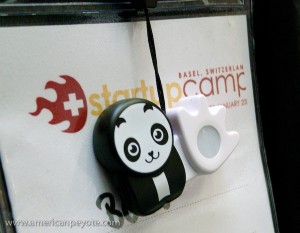 From what I’ve been told, Poken is huge in the
From what I’ve been told, Poken is huge in the 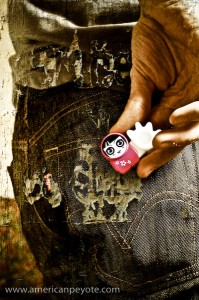
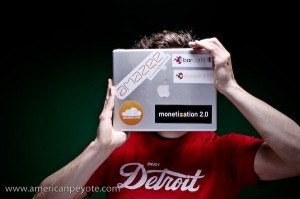 Organized on
Organized on 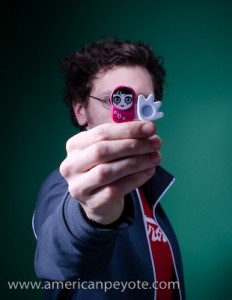 One of the many cool sponsors of the camp was Poken, a cool little device thats helps to aggregate all your social networks into one place. At first glance it reminded me of a Tamaguchi and the phrase “impending lawsuit by the makers of Pokemon?” was the first thing that popped into my mind when I saw the little device. Basically the Poken is used to exchange “Pokes” with people in real life, then you plug the device into a USB slot and head to the website, all the social network stuff is then right there for everyone you exchanges Pokes with. Pretty cool, fairly neat.
One of the many cool sponsors of the camp was Poken, a cool little device thats helps to aggregate all your social networks into one place. At first glance it reminded me of a Tamaguchi and the phrase “impending lawsuit by the makers of Pokemon?” was the first thing that popped into my mind when I saw the little device. Basically the Poken is used to exchange “Pokes” with people in real life, then you plug the device into a USB slot and head to the website, all the social network stuff is then right there for everyone you exchanges Pokes with. Pretty cool, fairly neat.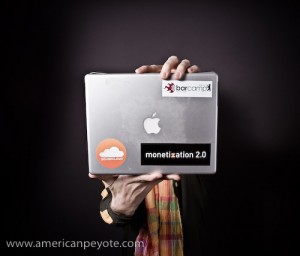
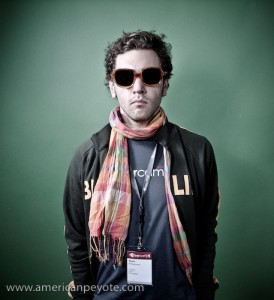
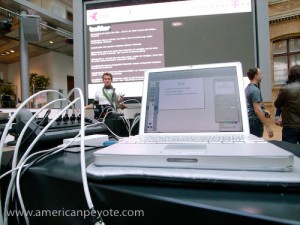 Bar Camp Berlin 3 was really a well-organized event. The only problem was in the acoustics of the event. The sessions were held in an open hall with dividers for to create small rooms, but the sound went up and reflected off the ceiling, making it hard to hear what was being presented. A minor thing. All in all Bar Camp Berlin rocked, and I couldn’t thank the organizers and sponsors enough. The event was held in the Hauptstadtrepräsentanz of the
Bar Camp Berlin 3 was really a well-organized event. The only problem was in the acoustics of the event. The sessions were held in an open hall with dividers for to create small rooms, but the sound went up and reflected off the ceiling, making it hard to hear what was being presented. A minor thing. All in all Bar Camp Berlin rocked, and I couldn’t thank the organizers and sponsors enough. The event was held in the Hauptstadtrepräsentanz of the 